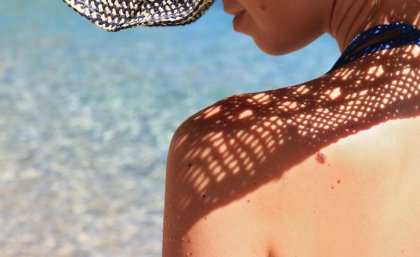Experts gather to boost detection of deadly melanoma
Experts are gathering in Brisbane this week to establish a road map for reducing melanoma deaths in Australia.
Australia leads the world with the highest rates of invasive melanoma, the deadliest form of skin cancer.
University of Queensland researcher and Melanoma Screening Summit convenor Professor Monika Janda said it was time to look at new frameworks for the early detection of melanoma.
“We have the foremost leaders from Australia and around the globe who will see if Australia is ready for a cancer early detection program for melanoma,” Professor Janda said.
“Melanoma is truly our national cancer, with Australians experiencing 12 times the global average incidence.
“Almost 14,000 Australians are diagnosed with melanoma each year and it is the most common cancer in Australians aged 15-39 years.
“Queensland leads the nation in melanoma rates, so it is appropriate to bring the world experts here to spearhead the fight against the deadly skin cancer,” Professor Janda said.
“We know if we find a melanoma early, survival is dramatically improved.
“The Screening Summit aims to establish what is needed to optimise early detection pathways, especially for Australians most at risk of developing the cancer.”
Harnessing artificial intelligence to detect cancerous moles is likely to play an important role in future melanoma surveillance.
In 2017, Stanford University developed a deep learning algorithm that classifies skin cancer with the same accuracy achieved by 21 dermatologists.
Stanford University Dermatology Professor Susan Swetter will speak to the summit about the impact this will have on detecting melanomas.
Dr Swetter said artificial intelligence could augment clinical decision-making and potentially reduce disparities in health care access and delivery.
“For melanoma, this could result in earlier detection that would save lives,” Dr Swetter said.
Professor Janda said current Australian guidelines did not recommend screening for melanoma due to a lack of trial evidence.
“By bringing Australian and international skin cancer experts to Brisbane, we’re hoping to lead the world by establishing a road map towards better early detection of melanoma,” she said.
The summit is hosted by the Australian Skin and Skin Cancer Research Centre, a joint collaboration of The University of Queensland and QIMR Berghofer Medical Research Institute.
The centre hosted the 2018 Sunscreen Summit, which resulted in a change to national sunscreen policy.
Media: Faculty of Medicine Communications, med.media@uq.edu.au, +61 7 3365 5133, +61 436 368 746.




